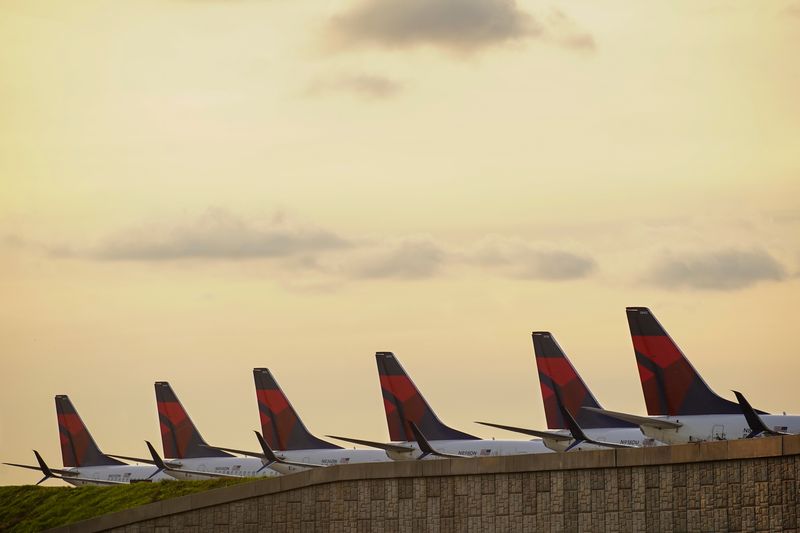By Rajesh Kumar Singh
CHICAGO (Reuters) -Delta Air Lines CEO Ed Bastian on Thursday said travel has become the topmost priority for consumers, but capacity constraints at U.S. carriers will not let them catch up with demand for an "extended period of time," helping sustain the post-pandemic travel boom.
His comments came hours after the Atlanta-based carrier lifted its full-year profit outlook for the second time in less than a month and posted the highest quarterly earnings in its history.
Delta's shares closed down 0.5% at $47.71.
The urge to travel despite rising living costs has sent bookings at U.S. carriers soaring, as consumers cut spending on goods in favor of experiences. But airlines are not able to keep up due to persistent shortages of aircraft, spare parts and labor.
"After years of spending on goods, consumers want to travel," Bastian said on an earnings call. "At the same time, aviation infrastructure is still fragile."
Last month, he said there was close to a 20-point gap between travel demand and the industry's capacity, which was going to turn the travel boom into a "multi-year phenomenon."
However, there are signs that airfares have peaked.
U.S. inflation data on Wednesday showed airline fares posted a third straight monthly decline. Year-over-year, fares dropped at their fastest pace since February 2021.
In an interview, Bastian asked not to read too much into the data as it compared to a period of time last year when consumers had just started to travel again after the pandemic and the supply was limited, leading to a surge in ticket prices.
"Crazy" increases in ticket prices at that time were not "sustainable," he told Reuters. With increased supply, Bastian said fares now have "normalized."
Delta's earnings report shows airlines are still enjoying pricing power. Delta's total revenue per seat mile (TRASM), a proxy for pricing power, was up 1% in the second quarter from a year ago despite a 17% jump in capacity.
Bastian said a high statistical base may impact the company's TRASM in the second half of the year, but it is expected to stay "quite strong."
Delta's air traffic liability, reflecting future bookings, at the end of the April-June quarter was $10.4 billion, up $500 million from a year ago.
It now expects adjusted earnings of $6-$7 per share this year, compared with its previous forecast of $5-$6 per share.
Adjusted profit for the second quarter came in at $2.68 per share, above analysts' estimates of $2.40.
For the third quarter, it forecast earnings in the range of $2.20-$2.50 per share, while analysts expect $2.07, according to a Wall Street consensus.
Citi analyst Stephen Trent said "ongoing, strong earnings results should begin to give the market greater comfort," helping drive up Delta's stock valuations.
Carriers typically rely on big-spending corporate customers to fill high-margin seats after the summer travel season, but recovery in corporate travel remains sluggish.

Bastian said even though people are not traveling a lot for work, hybrid work arrangements have led to a 50% jump in personal trips versus the pre-pandemic period.
"People are traveling for more reasons than just work at an accelerated pace," he said.